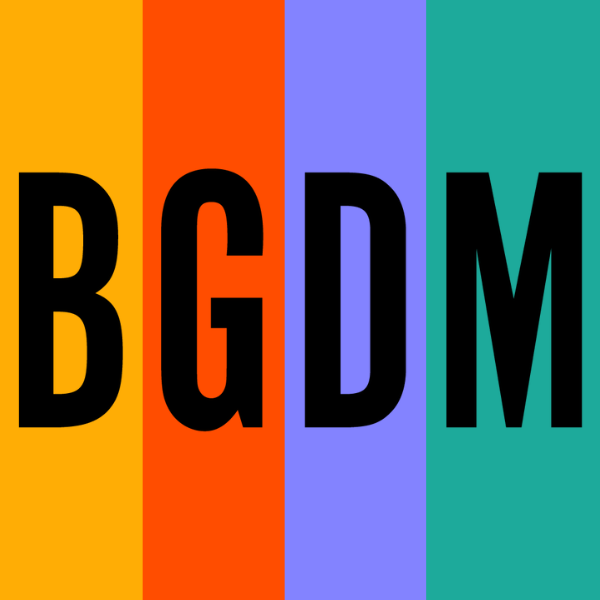Real Talk at Gotham Week
Lissa Deonarain, Kitty Hu & Susan Yin • September 24, 2022
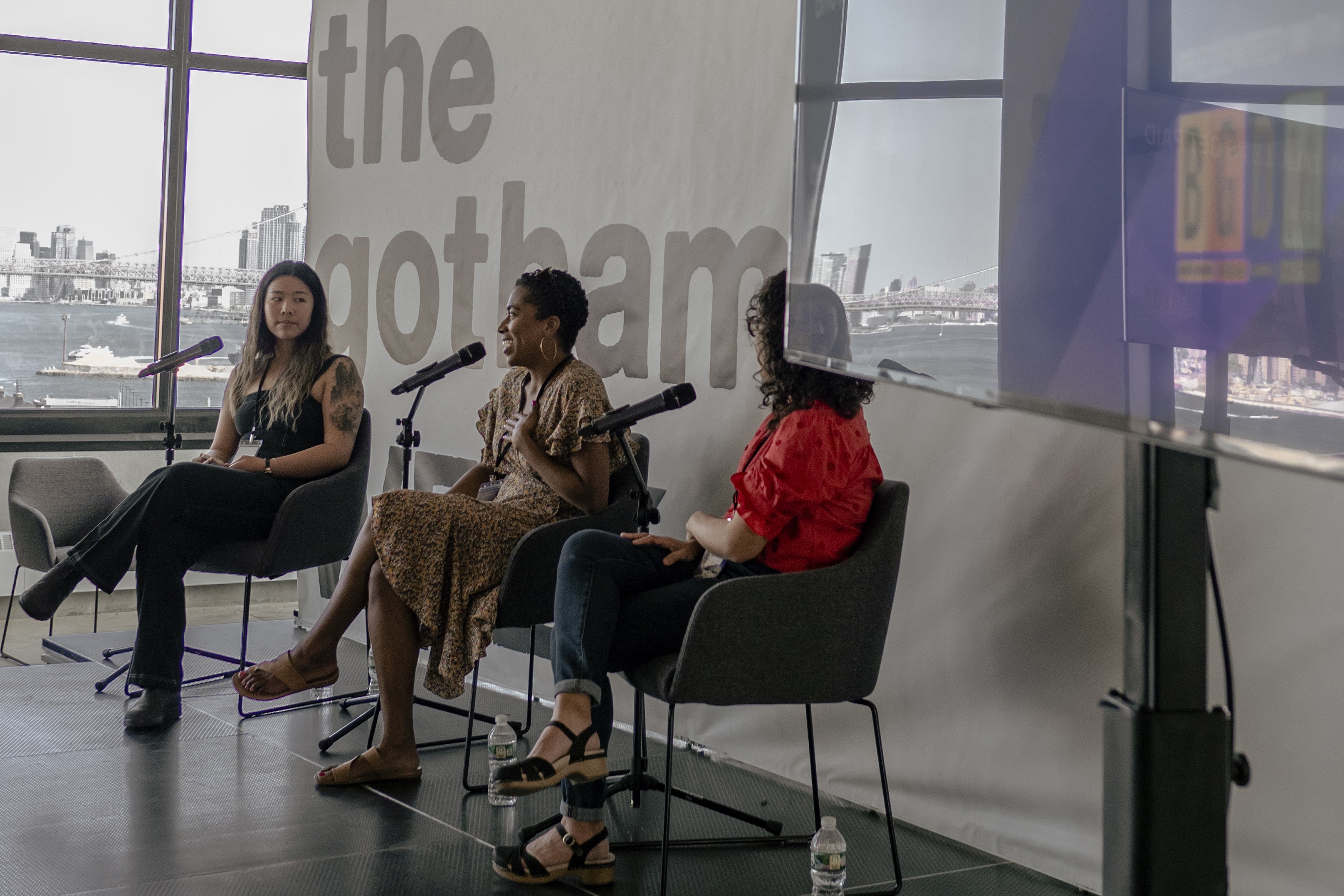
BGDM is proud to have been a part of Gotham Week 2022! We absolutely loved connecting with Mafiosxs in person at our booth and pushing forward important conversations about pay equity and data through our panel conversations.
Back in Action & in Person
For three days, BGDM showed up and showed out at our very own Gotham Week Expo booth. Thank you to our BGDM members Roxanne Lim, Cynthia Martinez and Chithra Jeyaram who volunteered to work the booth alongside BGDM staff. We’re so grateful to have members who take time out of their busy lives to give back to this organization — that’s community in action!
Our booth was complete with some newly designed materials that you’ll see around at future BGDM events. We had existing members drop by as well as allies and prospective members who are excited to learn more about what we do as an organization. We also had the chance to chat with some of our friends at organizations like Pano, Undocumented Filmmakers Collective, Hue You Know, Free the Work, BlackStar and more!
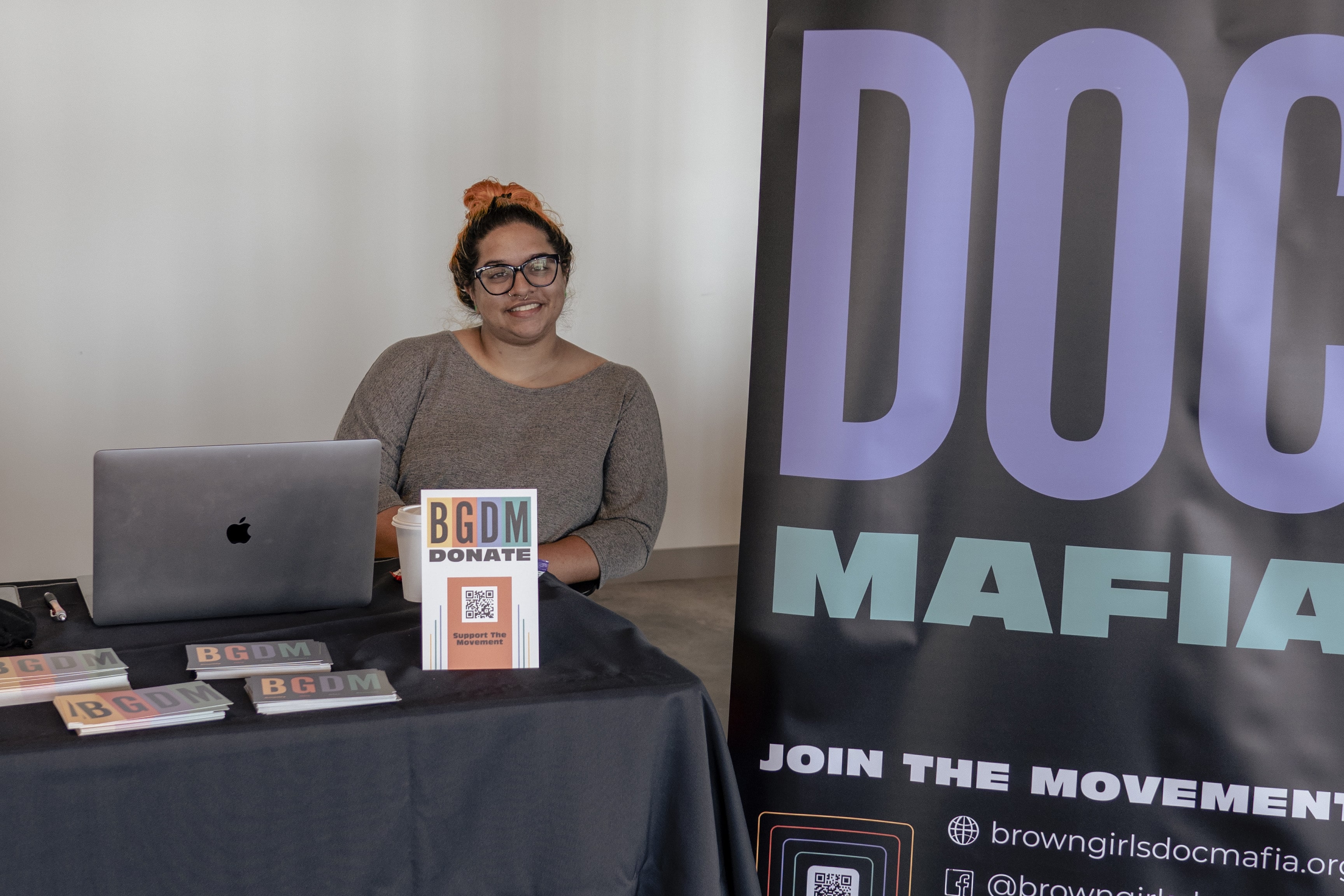 Photo by Susan Q. Yin
Photo by Susan Q. Yin
Real Talk: Let's Get Paid
In partnership with Gotham Week, we invited BGDM members Carla Gutiérrez and Emmy-nominated Cydney Tucker to share their experience as independent filmmakers in our panel, REAL TALK: LET’S GET PAID.
Over and over, we hear our community members talk about pay and credit inequities and harmful workplace practices. With the ongoing pandemic, racial reckonings spurred by the 2020 uprisings, and conversations about capitalism-driven work culture, it’s time for our industry to not only re-examine who is shaping our stories, but how our storytellers are treated (and paid) in the process. We can only do this through knowledge sharing.
Producers, editors, please find your community. Especially females, we need to share information and talk about rates and address the inequities head on.
CARLA GUTIÉRREZ, BIPOC DOC EDITORS CO-FOUNDER
Editors face a different landscape as their skills are generally in high demand and the jobs have more sustainability. However, associate and assistant editors need to be given opportunities to develop their creative craft and not relegated to only technical tasks. Practically, this means budgeting for an associate or assistant editor, involving them in creative meetings, and giving feedback rounds for them to grow as editors in their own right.
“I’m looking forward to the day [when] we don’t have to talk about equity, we can just talk about our craft! But we’re just not there yet, we need to keep pushing for better wages,” Cydney added. As Cydney reminded us, our industry is strategically designed to make it harder to unionize through layers of subcontracting from networks to production companies. However, through collectives like BGDM, A-Doc, FWD-Doc, Video Consortium, Documentary Producers Alliance, BIPOC Doc-Editors, and many more, we can organize and share resources amongst our communities.
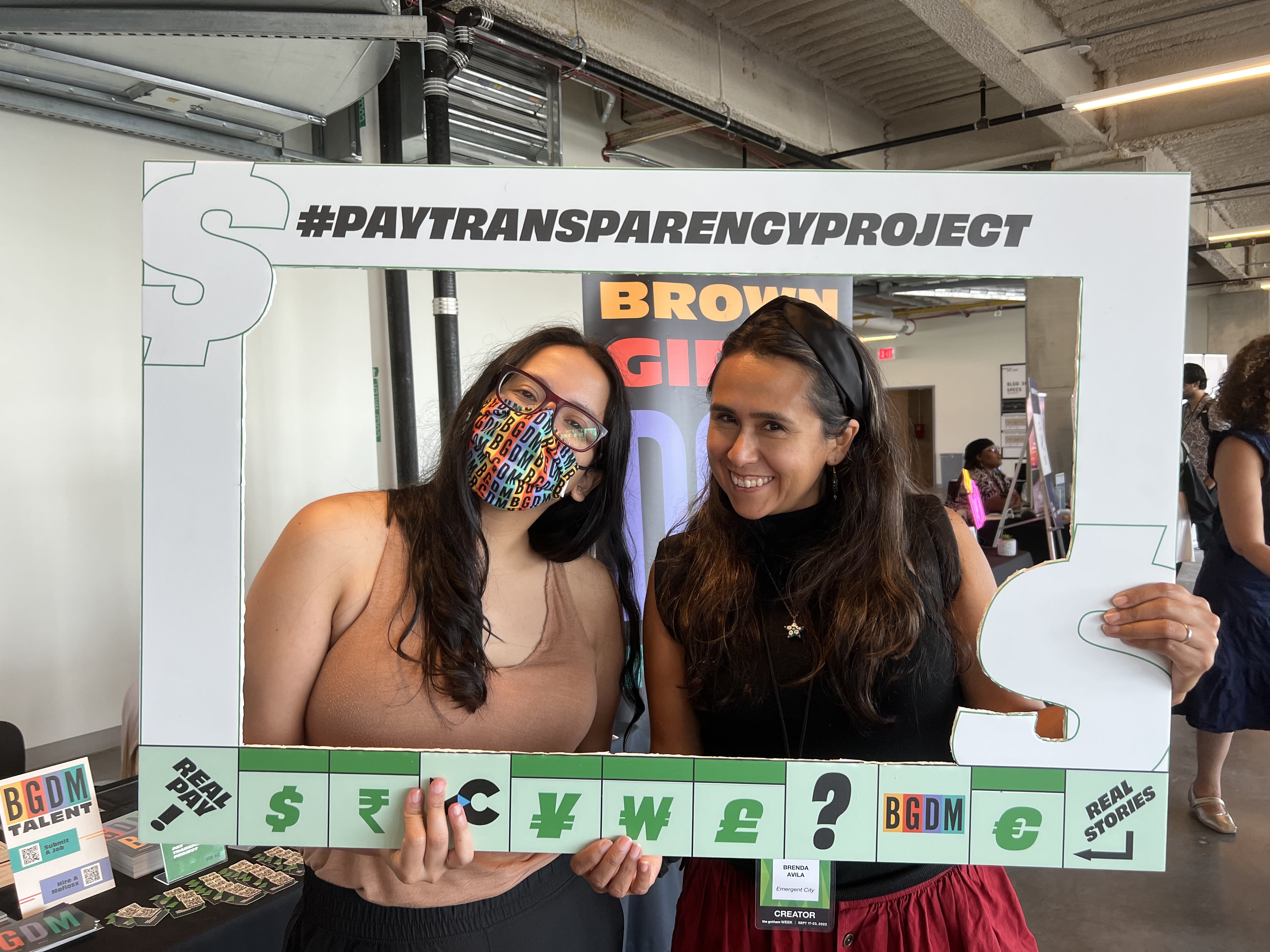 Photo by Susan Yin
Photo by Susan Yin
Alongside Video Consortium, BGDM is excited to officially announce the launch of Pay Transparency Project (PTP), a community-driven database that offers nonfiction video professionals timely insight into constantly evolving hiring trends and pay parity practices. Collecting this data is the beginning of consolidating our communal knowledge and experiences to better advocate for all nonfiction storytellers. Support us by filling out the survey and spreading the word about PTP!
Creating Opportunities with Data
BGDM is also grateful to participate in the Undocumented Filmmakers Collective (UFC)’s panel, CREATING OPPORTUNITIES WITH DATA. UFC’s Nicole Solis-Sison and Carlos Ibarra kicked off the conversation recognizing the difficulty in collecting and using data as a tool to advocate for their Undocumented members. As member-based initiatives, we are committed to not only the success, but also the safety of our members. To ensure that we are meeting the needs of our members, micro-organizations like UFC, BGDM, and Pano rely on data from carefully crafted surveys. As newer organizations, we are learning from our members — their multifaceted identities, cultures, geographies, professions, help needed — instead of only using data for funder purposes. Our relationship with our members are non-transactional. However, as underlined by Pano Founder Cidney Hue, we need more support from our members and allies because we lack the capacity and resources.
Just like the call to action from REAL TALK: LET’S GET PAID, grassroots collectives must collaborate so that we can all grow stronger together. To break through the opaque documentary industry, we have to chart our own path and create a new norm.
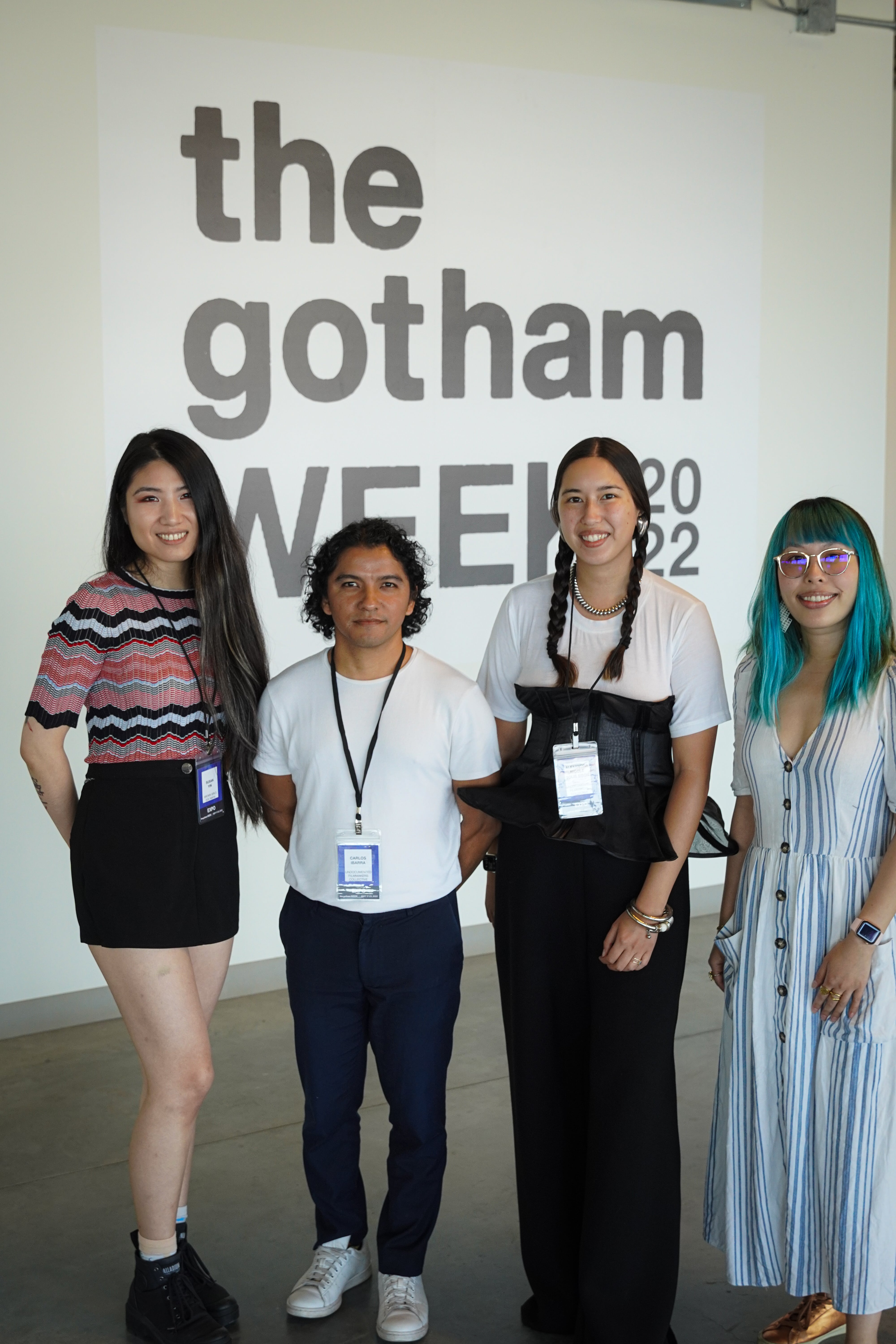
Photo by James Manjo


